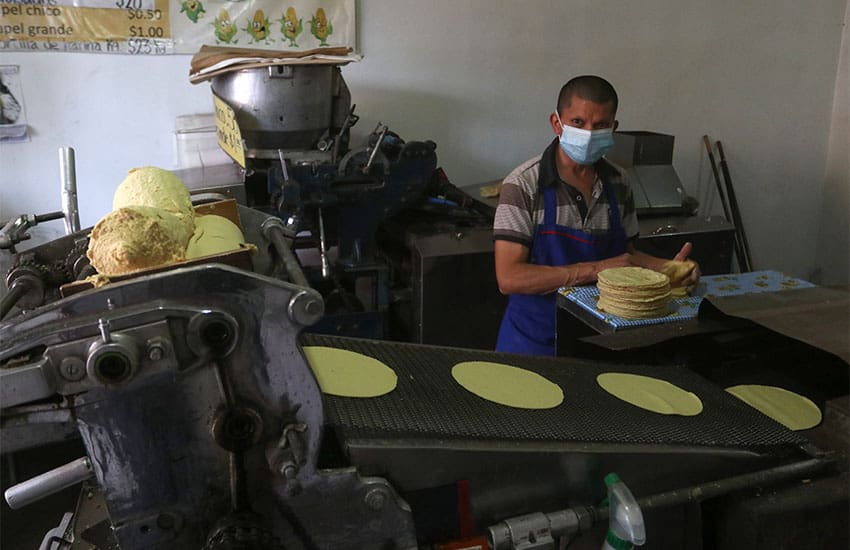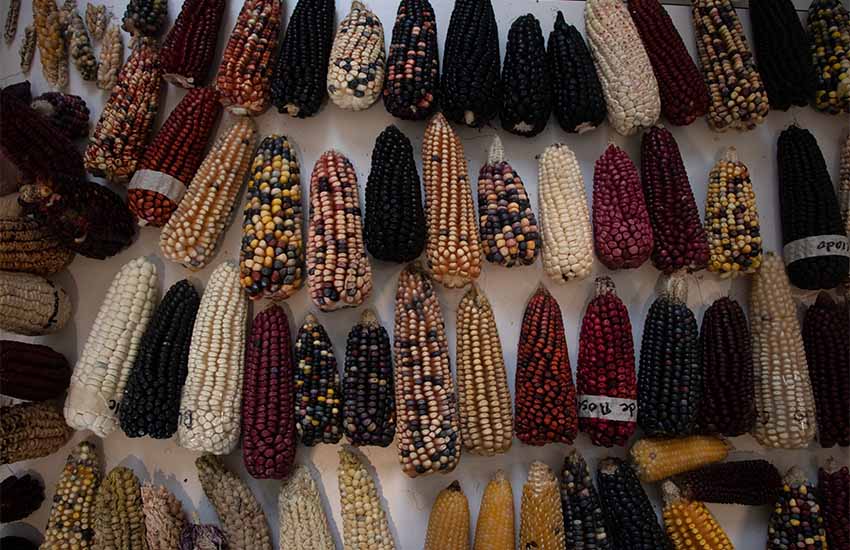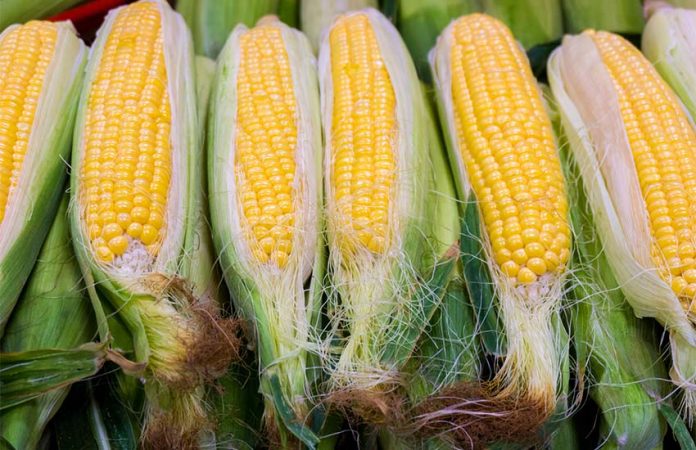The United States government announced Monday that it was requesting “technical consultations” with its Mexican counterpart over Mexico’s plan to phase out imports of genetically modified corn by 2024.
The Office of the United States Trade Representative (USTR) said it made the request under the Sanitary and Phytosanitary Measures (SPS) Chapter of the United States-Mexico-Canada Agreement (USMCA), the free trade pact that took effect in 2020.
“These consultations regard certain Mexican measures concerning products of agricultural biotechnology,” it said in a statement.
If the two countries fail to reach a resolution through the consultations, the United States could request the establishment of a dispute settlement panel under the USMCA.
The U.S. could place punitive tariffs on Mexican imports if no resolution is reached via a panel.
“The United States has repeatedly conveyed our serious concerns with Mexico’s biotechnology policies and the importance of adopting a science-based approach that complies with its USMCA commitments,” said U.S. Trade Representative Katherine Tai.

“Mexico’s policies threaten to disrupt billions of dollars in agricultural trade and they will stifle the innovation that is necessary to tackle the climate crisis and food security challenges if left unaddressed. We hope these consultations will be productive as we continue to work with Mexico to address these issues.”
The USTR said that Mexico is a “valued trading partner and the United States is committed to working with it to resolve these biotech issues and avoid any disruption in trade in corn or other agricultural products.”
However, “if these issues are not resolved, we will consider all options, including taking formal steps to enforce U.S. rights under the USMCA,” it said.
Mexico’s Economy Ministry (SE) said in a statement that the USTR request for consultations was aimed at addressing the government’s Feb. 13 decree on genetically modified corn.
The SE noted last month that the decree – which supersedes one issued in December 2020 – clarifies that only imports of GM corn for human consumption in the form of masa (dough) and tortillas will be phased out by 2024.
It said that Mexico is self-sufficient in the production of GM-free white corn and therefore the move to phase out GM corn for human consumption doesn’t have any impact on “trade or imports.”

However, according to a Reuters report, a representative from the U.S. National Corn Growers Association (NCGA) said that corn for food use, including both yellow and white corn, makes up about 21% of Mexico’s corn imports from the United States. Over 90% of United States-grown is genetically modified, according to the U.S. government.
The SE also said in February that the new decree scraps a deadline for ending the use of GM corn for animal feed and industrial purposes, replacing it with a gradual phase-out depending on supply. In addition, the decree extended slightly – until March 2024 – the deadline for ending Mexico’s use and import of glyphosate, a controversial herbicide.
The SE said Monday that the USTR’s consultations request wasn’t “contentious” but rather aimed at “finding a solution in a cooperative way.”
“For that reason, [Economy] Minister Raquel Buenrostro Sánchez, the head of the USTR, Ambassador Katherine Tai, and their teams have been holding constructive dialogue with a view to finding solutions that provide certainty to the interested parties,” it said.
“As this ministry has pointed out on repeated occasions, the objective of the decree is to maintain the production of tortillas with native corn, ensuring the conservation of the biodiversity of more than 64 types of corn in the country, of which 59 are endemic,” the SE said.
Mexico, the SE added, will use the consultations with the United States “to prove with data and evidence that there hasn’t been a commercial impact [from the phasing out of GM corn imports] and that … the decree is consistent with [the USMCA].”

The ministry also said that Mexican authorities will seek “a mutually satisfactory solution” in their talks with their U.S. counterparts.
Mexican and U.S. officials must meet within 30 days to engage in the requested consultations.
The NCGA said last month that the proposed ban on GM corn exports to Mexico “would be catastrophic for American corn growers as well as the Mexican people, who depend on corn as a major staple of their food supply.”
The president of that association, Tom Haag, said Monday that “we are pleased USTR is taking the next step to hold Mexican officials accountable for the commitments they made under USMCA, which include accepting both biotech and non-biotech commodities.”
“Mexico’s position on biotech corn is already creating uncertainty, so we need U.S officials to move swiftly and do everything it takes to eliminate this trade barrier in the very near future,” he said.
United States Agriculture Secretary Tom Vilsack said in a statement that his department remained “unequivocal in our stance that the science around agricultural biotechnology has been settled for decades.”

The technical consultations “represent the next step in addressing the United States’ concerns with Mexico’s biotechnology policies,” he said.
“While we appreciate the sustained, active engagement with our Mexican counterparts at all levels of government, we remain firm in our view that Mexico’s current biotechnology trajectory is not grounded in science, which is the foundation of USMCA,” Vilsack said.
“… We remain hopeful that our concerns can be fully addressed but, absent that, we will continue to pursue all necessary steps to enforce our rights under the USMCA to ensure that U.S. producers and exporters have full and fair access to the Mexican market.”
The Mexican and United States governments are already engaged in talks over the former’s nationalistic energy policies.
In July, both the U.S. and Canada requested dispute settlement consultations with Mexico, arguing that the Mexican government is violating the USMCA with policies that favor state-owned energy companies over private and foreign ones, including many that generate renewable energy.
Mexico News Daily
